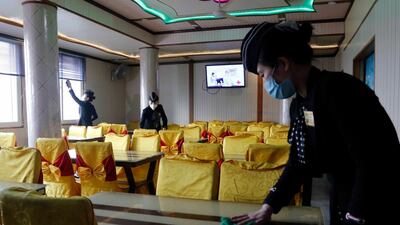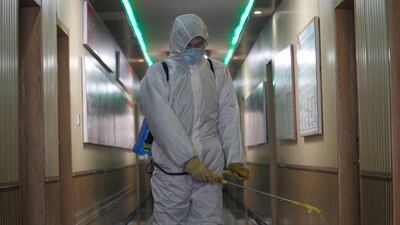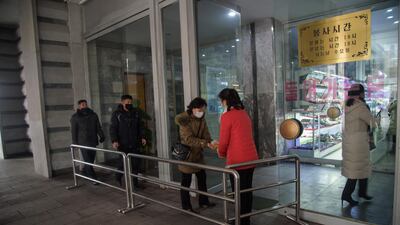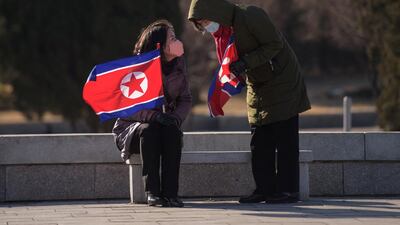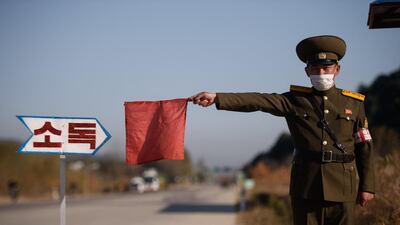North Korea attempted to steal coronavirus vaccine technology by hacking drugs company Pfizer, South Korea's Yonhap news agency reported on Tuesday citing Seoul's National Intelligence Service.
The information was revealed during a session of the National Assembly's intelligence committee. It was not clear when the attempted hack took place.
The intelligence agency "briefed us that North Korea tried to obtain technology involving the Covid vaccine and treatment by using cyber warfare to hack into Pfizer," MP Ha Tae-keung told reporters.
The Covax international vaccine alliance announced in February that it had allotted nearly two million doses for North Korea’s population of 25 million.
Organisers from the World Health Organisation alliance, which supplies middle and low-income countries with vaccines, received no official response from Pyongyang to questions of how the vaccines were to arrive and who would be given them.
North Korea's isolationist approach to global affairs has made it difficult to make accurate estimates about how severe the effect of the pandemic there has been.
The cyber attack raised questions about leader Kim Jong-un’s claim that North Korea has had no coronavirus cases.
Last week marked the first anniversary of North Korea's tightly controlled border being completely closed to travel.
It was the first country to take such drastic action, shutting down travel links in January 2020.
Inside North Korea, authorities keep up a traditional Covid-19 public awareness campaign, urging people not to let down their guard and mobilising health workers to step up monitoring of the people in their districts, the Associated Press reported.
The uneven global distribution of coronavirus vaccinations has favoured countries with manufacturing capabilities.
The US, Europe and India have emerged as major producers of the coveted inoculations.
"It seems that many states were interested in Covid-related information, including vaccines. In this sense, it may not be entirely surprising that cyber capabilities were deployed to the task," cyber security researcher Dr Lukasz Olejnik told The National.
While this was not the first hack attempted against Pfizer, it appeared to have been the first by a state looking to steal vaccine technology.
The global competition for a limited number of available vaccines has created an "unprecedented cyber security risk", Dr Olejnik said.
"Such risks demand the prioritisation of cyber security in general."
In December, Pfizer documents stored on a server belonging to the European Medicines Agency were accessed, manipulated and released publicly by hackers. The documents were related to the regulatory submission for Pfizer and BioNTech’s vaccine.

